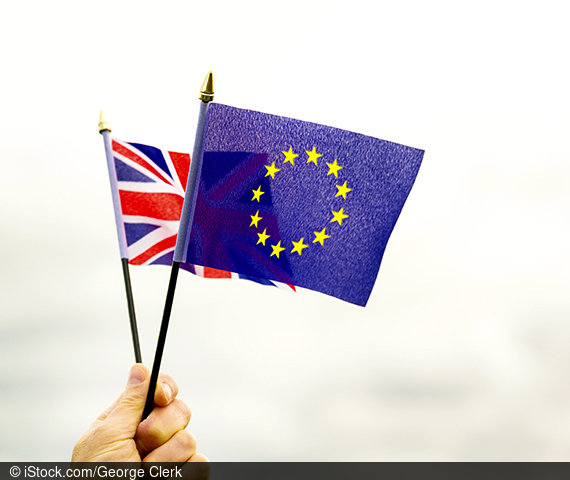Hard Brexit Fuels Tax Competition in Europe
European IntegrationWere a hard Brexit to occur, companies in Europe would be confronted with an unclear legal situation, potentially leading to an intensification of international tax competition. A no-deal (hard Brexit) scenario would give Great Britain more room for national tax legislation manoeuvring, especially due to the elimination of the binding effect of European law and case law of the European Court of Justice. However, both German companies investing in the United Kingdom and British companies investing in Germany would have to face increasing tax disadvantages. As far as being an attractive business location is concerned, Germany could easily feel compelled to introduce some tax reforms.
These are the results of an analysis from the economic research institute ZEW in Mannheim, the University of Mannheim, as well as by Dr. Sven-Eric Bärsch, tax consultant and associate partner at the law firm Flick Gocke Schaumburg for the trade journal "Der Betrieb.” In addition to the international tax burden differences to the status quo, the article also highlights the income tax consequences of a hard Brexit for German companies.
For their part, the researchers assume a no-deal scenario, i.e. that Great Britain and the remaining EU member states will not be able to agree on a withdrawal agreement by 31 October 2019. As a result of the no-deal, the United Kingdom would have the status of a third-party country without access to the EU internal market and the European customs union.
Changing competitive conditions
In order to determine the tax location conditions in a before-and-after comparison, the development of the effective corporate tax burden between 2009 and 2017 was examined using the simulation model European Tax Analyzer. The researchers concluded that Great Britain, in the case of a hard Brexit, would be exempt from case law of the European Court of Justice and from the ban on restrictions in light of the fundamental freedoms in the EU internal market. On the one hand, this would create a legal vacuum i.e. new uncertainties for companies. On the other hand, it would give British legislators the opportunity to enact stricter defence laws against foreign companies while promoting national industries and companies in a more individual, targeted manner. The United Kingdom would no longer be bound by minimum standards in the fight against tax evasion and would thus be able to react more flexibly to changing competitive conditions.
“Taken together, all of these factors could lead to a significant improvement in the UK's tax investment conditions after Brexit,” says Prof. Dr. Christoph Spengel, ZEW research associate and current Chair of Business Administration and Taxation II at the University of Mannheim. The tax rate for companies in the United Kingdom, at 19 percent, is already lower than in Germany, where the combined income tax rate is around 32 percent. “If the British maintain the planned reduction of corporate income tax to 17 percent by 2020, this could create additional investment incentives for the UK as a business location,” Spengel explains.
Should a hard Brexit ensue, tax politics in Germany will be under pressure
However, the analysis also shows that British companies, as a result of Brexit, would only be covered by free movement of capital protection for their investments in the remaining EU countries, which could entail tax disadvantages. For example, there is considerable risk for British companies that dividends from subsidiaries domiciled in Germany would be subject to a withholding tax under Brexit. In the case of investments by German companies in the United Kingdom, the German controlled foreign corporation (CFC) taxation could again be applied after a hard Brexit, which would lead to additional tax burdens. Finally, if assets are to be transferred from the German headquarters of a company to its British branch, immediate taxation would apply post-Brexit, resulting in interest and liquidity disadvantages. “The tax attractiveness of the United Kingdom for all investment projects by German companies on the island may therefore suffer enormously, even though the British government is planning further tax reductions,” explains Christoph Spengel.
According to the researchers, Brexit might result in Germany, currently a high-tax location, implementing an active tax policy of its own, which would reach beyond internationally coordinated harmonisation measures already in place. “Many EU Member States, such as Belgium and France, have recently implemented or announced major tax reforms. Germany last reformed its corporate taxation system in 2008. Should a hard Brexit ensue, tax politics in this country will be under pressure,” says Christoph Spengel in conclusion.
One way of increasing the attractiveness of Germany as a business location, according to the researchers, would be to introduce tax incentives for research and development (R&D). With the Research Allowance Act (Forschungszulagegesetz (FZulG)), the introduction of such incentives were decided in July 2019, but the measures proposed in it were significantly less impactful than, for example, the United Kingdom’s, where immediate write-offs and tax credits for R&D funding became available, among other benefits.
